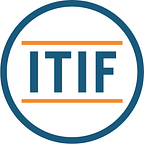NIRAMAI Thermalytix: Transforming Early Breast Cancer Detection in India
This post is one of a series in the #Innovate4Health policy research initiative. #Innovate4Health is a joint research project by the University of Akron IP Center (UAIP), the Information Technology & Innovation Foundation (ITIF), and the Geneva Network. This project highlights how intellectual-property-driven innovation can address global health challenges. If you have questions, comments, or a suggestion for a story we should highlight, we’d love to hear from you. Please contact UAIP Research Fellow Douglas Park at dpark@uakron.edu for more information.
Natalie Khoo
Breast cancer looms as a silent threat to millions of women globally, affecting approximately one woman every 14 seconds, somewhere across the world. With the increasing incidence of breast cancer, the global cancer burden is only likely to increase, especially in low-income countries such as India. While early breast cancer diagnosis through mammography screening programs is crucial in reducing the breast cancer burden, women in India are 50 percent less likely to be diagnosed early with breast cancer than women in high-income countries. This is underscored by India’s 3-year breast cancer survival rate of 68 percent, as compared to the global average of 84 percent.
Amidst India’s breast cancer crisis emerges NIRAMAI Thermalytix — a novel artificial intelligence (AI)-based medical device that detects breast cancer at a much earlier stage by utilizing patented machine learning algorithms to analyze thermal imaging data (Patent numbers: US 9898817, US10307141, US10055542, US9622698). NIRAMAI, which stands for “Non-Invasive Risk Assessment with Machine Intelligence” is at the forefront of highlighting the transformative role that intellectual property can play in the healthcare innovation field in low-income countries with its patented technology called Thermalytix©. To date, NIRAMAI has been granted 33 patents, including 11 in the United States and others across India, Europe, Singapore, Japan, and Canada to ensure the company’s intellectual property is widely protected.
The World Health Organization (WHO) recommends a doctor-patient ratio of at least 1:1000 — one doctor per 1000 patients — to ensure adequate healthcare coverage. In India, however, this ratio is significantly lower, with only 0.74 doctors per 1,000 patients, in contrast to the top 10 GDP-ranked countries. The team at NIRAMAI, under the leadership of CEO Dr. Geetha Manjunath addressed this problem through an innovative approach. By offering an automated and portable cancer screening tool that can be easily operated in any clinic, including by low-skilled personnel, NIRAMAI Thermalytix demonstrates its ability to provide essential breast cancer screening services to women of all ages in resource-constrained environments where mammography screening is not feasible.
Since its launch, NIRAMAI’s low-cost medical device has helped more than 100,000 women across India and globally by enabling early screening for breast cancer. It is able to reduce diagnostic costs by approximately 95 percent compared to traditional screening methods. Moreover, NIRAMAI Thermalytix’s radiation-free approach, combined with its non-invasive and painless imaging method, also makes breast cancer screening a comfortable and pain-free experience, as opposed to traditional mammography, which can cause discomfort or pain for some individuals. Similarly, the patented technology of Thermalytix not only provides affordable, reliable, and high precision breast cancer screening services, but also ensures timely detection, as it can detect significantly smaller tumors (≤2cm) than those that can be detected through clinical breast examination and the whole process takes only 10 to 15 minutes.
NIRAMAI Thermalytix’s success has attracted significant financial backing — the company raised a total of $7 million from institutional investors in India, Japan and Singapore, such as Dream Incubator, pi Ventures and Ankur Capital, just to name a few. The Bill & Melinda Gates Foundation and numerous others have acknowledged the value of the innovation, and awarded the inventors funding to continue research, development and deployment of their innovation. Additionally, with its FDA approval in 2022, NIRAMAI became the first Indian company to receive both European and US FDA clearance for a medical device used for women health, marking a significant milestone in the healthcare company’s journey as it enters the lucrative US market.
In addition to its application in breast cancer screening, NIRAMAI also employed its technology to respond to the COVID-19 outbreak by introducing “FeverTest.” This device combined NIRAMAI’s most awarded novel AI solution, Thermalytix, with a thermal camera to detect elevated temperature (fever). This further highlights the pivotal role of intellectual property protection, as NIRAMAI’s patented technology was able to quickly adapt its technology to an urgent health crisis, amplifying community screening and complementing India’s national response to combating COVID-19.
Intellectual property rights have played a significant role in bringing NIRAMAI Thermalytix to market. According to CEO Manjunath, “patenting has become a way of life” emphasizing the importance of protecting innovative ideas. She advocates for startups to leverage government initiatives such as fast-tracking, reimbursement of application fees (with caveats), filing under the Patent Cooperation Treaty, thorough scrutiny of Non-Disclosure Agreements (NDAs), and access to research grants. This underscores the significant role of patents in enhancing the value of a startup and supporting innovative health solutions.
NIRAMAI Thermalytix’s success has demonstrated the great potential for improving early breast cancer detection in low-income countries such as India. This advancement in breast cancer screening technology is crucial, especially in low-resource settings where organized mammography screening is not feasible due to factors such as affordability, limited healthcare access in rural and remote areas, infrastructure constraints, and shortage of healthcare providers. NIRAMAI Thermalytix has shown promise in bridging the gap in breast cancer diagnosis and ultimately saving lives. Its technology and the intellectual property embedded within represent one important piece of the larger policy puzzle that affects healthcare outcomes in low-income countries.
